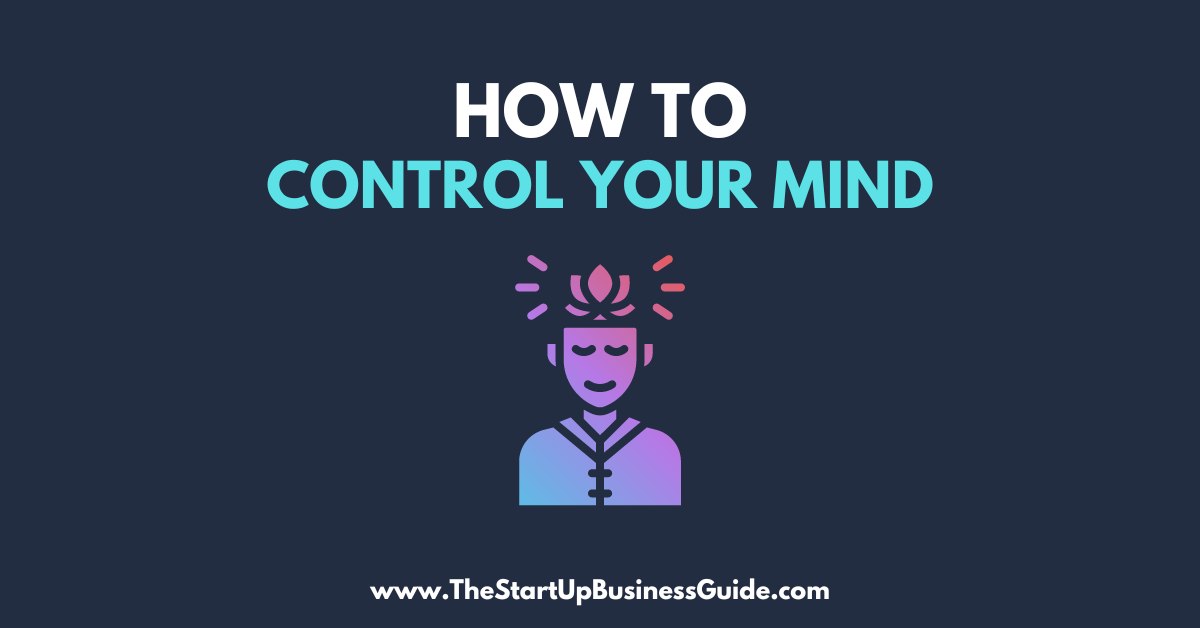How to Control Your Mind

As business professionals, we understand the importance of being in control of our thoughts and emotions in order to make sound decisions and achieve success.
In this article, we will discuss the brain’s basic structure and function, the subconscious mind’s role in shaping our behavior, and various techniques and strategies for gaining control over the mind.
We will also cover common roadblocks to mind control and provide tips for overcoming them.
By the end of this article, you will have a better understanding of how to control your mind and improve your overall performance in the business world.
Understanding the Mind
The brain is the most complex organ in the human body and plays a crucial role in controlling our thoughts and emotions.
The brain is divided into three main parts: the cerebrum, the cerebellum, and the brainstem.
The cerebrum is the largest part of the brain and is responsible for conscious thought, memory, and decision-making.
The cerebellum is responsible for coordinating movement and balance.
The brainstem connects the brain to the spinal cord and controls vital functions such as breathing and heart rate.
Our thoughts and emotions are constantly changing and can be classified into two main categories: positive and negative.
Positive thoughts and emotions include feelings of happiness, excitement, and contentment, while negative thoughts and emotions include feelings of stress, anxiety, and depression.
It is important to note that both types of thoughts and emotions are normal and have a purpose in our lives.
The subconscious mind plays a key role in shaping our behavior.
It is responsible for storing and processing information that is not currently in our conscious awareness.
It also controls our automatic behaviors and habits, such as driving a car or typing on a keyboard.
The subconscious mind can be programmed through repetition and consistent thought patterns, which is why it is important to be aware of the thoughts and emotions that we are exposing it to on a daily basis.
Mind Control Techniques
Mindfulness and meditation are key techniques for gaining control over the mind.
Mindfulness is the practice of being present in the current moment and observing one’s thoughts and emotions without judgment.
Meditation is a form of mindfulness that involves focusing on a single point of attention, such as the breath.
Both practices can help to improve focus and concentration, reduce stress and anxiety, and increase self-awareness.
Managing negative thoughts and emotions is another important aspect of mind control.
Techniques such as reframing and cognitive-behavioral therapy can change how we think about and react to negative situations.
Reframing is the process of looking at a situation from a different perspective, while cognitive-behavioral therapy is a form of therapy that aims to change negative thought patterns and behaviors.
Visualization and affirmations are also powerful tools for programming the subconscious. Visualization involves creating a mental image of a desired outcome and focusing on it consistently.
Affirmations are positive statements that are repeated on a regular basis to reinforce a particular belief or thought.
Both techniques can create new neural pathways in the brain and change how we think and feel about ourselves and the world around us.
Tips for developing a daily practice to maintain control over the mind include setting aside dedicated time each day for mindfulness and meditation, being mindful of the thoughts and emotions that we expose ourselves to, and consistently using visualization and affirmations.
It’s also important to remember that progress takes time, so be patient with yourself and don’t give up if you encounter setbacks.
Overcoming Limitations
Common roadblocks to mind control include stress and lack of motivation.
Stress can cause the mind to become overwhelmed and make it difficult to focus and make decisions.
To overcome stress, it’s important to identify the source of the stress and develop strategies to manage it, such as exercise, deep breathing, and time management.
Lack of motivation can be caused by a lack of clear goals or a lack of purpose.
To overcome this, it’s important to set clear and achievable goals, and to find ways to connect those goals to a deeper sense of purpose.
Another limitation that can affect mind control is the lack of discipline and consistency in one’s practice.
To overcome this, it’s important to establish a daily routine and stick to it.
Make sure to set aside dedicated time for mindfulness and meditation, and be consistent in using visualization and affirmations.
Also, it’s important to be patient with yourself and not to give up if you encounter setbacks.
Conclusion
In conclusion, mind control is an important aspect of achieving success in the business world.
By understanding the brain’s basic structure and function, the subconscious’s role in shaping our behavior, and various techniques and strategies for gaining control over the mind, we can improve our decision-making, focus, and overall performance.
Mindfulness, meditation, reframing, cognitive-behavioral therapy, visualization and affirmations are some of the techniques that can be used to control the mind.
Common roadblocks such as stress, lack of motivation, and lack of discipline can be overcome by setting clear goals, finding a deeper sense of purpose, and being consistent in one’s practice.
We hope this post has provided valuable insights and strategies for improving your mind control.
Remember, progress takes time, so be patient with yourself and don’t give up if you encounter setbacks.






